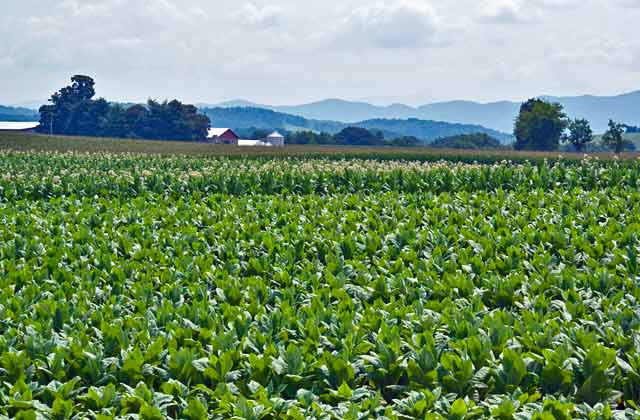Human Rights Watch (HRW) released a damning report that illustrates the conditions that child tobacco workers endure in the United States. The organization interviewed 141 child workers between the ages of 7 and 17 who work tobacco fields in North Carolina, Kentucky, Tennessee and Virginia, where 90 percent of tobacco is cultivated in the U.S. The conditions that children endure–including likely poisoning–are horrifying:
Nearly three-quarters of the children interviewed by Human Rights Watch reported the sudden onset of serious symptoms–including nausea, vomiting, loss of appetite, headaches, dizziness, skin rashes, difficulty breathing, and irritation to their eyes and mouths–while working in fields of tobacco plants and in barns with dried tobacco leaves and tobacco dust. Many of these symptoms are consistent with acute nicotine poisoning.
Tobacco cultivation is hard work, and HRW has found that children are exploited to work the fields in every step, from seeding to pesticide application to harvesting–sometimes by hand, sometimes by machine. Working by hand includes literally working on hands and knees to pick weeds. But working with machines or tools increases the likelihood of grave injury from sudden lacerations.
Long hours and low wages aren’t uncommon: one child interviewed by HRW explains how he worked 6 a.m. to 6 p.m. with only one five minute break and one half-hour lunch–and that was on a good day. Some child workers are discouraged from drinking liquids because no bathroom facilities are available in which to urinate. And while most child workers do earn the minimum wage of $7.25 per hour, some are paid fixed rates, or have contractor fees or even drinking water allowances deducted from their pay. Child tobacco workers are rarely afforded protective gear–and cover themselves in garbage bags brought from home to provide some safety for themselves.
Child tobacco workers in the U.S. are mostly Latino. And although their parents may be undocumented, the children themselves are usually U.S.-born citizens. HRW also found that some of the child workers are undocumented, but some applied and were approved for Deferred Action for Childhood Arrivals–which provides temporary relief from deportation two years at a time. Some child tobacco workers also arrive to the U.S. with family members or even alone, just to work the fields.
The tobacco these child workers cultivate enters a supply market and is ultimately used to manufacture some of the best-known brands of cigarettes in the U.S., including Marlboro, Newport, Camel, Winston, Parliament, Virginia Slims, Pall Mall and more.
HRW points out that while U.S. law prohibits children under the age of 18 from buying tobacco products, it also "law fails to recognize the risks to children of working in tobacco farming." The organization makes a long list of recommendations to the President, Congress, agencies, states, tobacco manufacturers and even employers themselves to address the horrors that child tobacco workers face in the fields.
You can read the report in full online.
